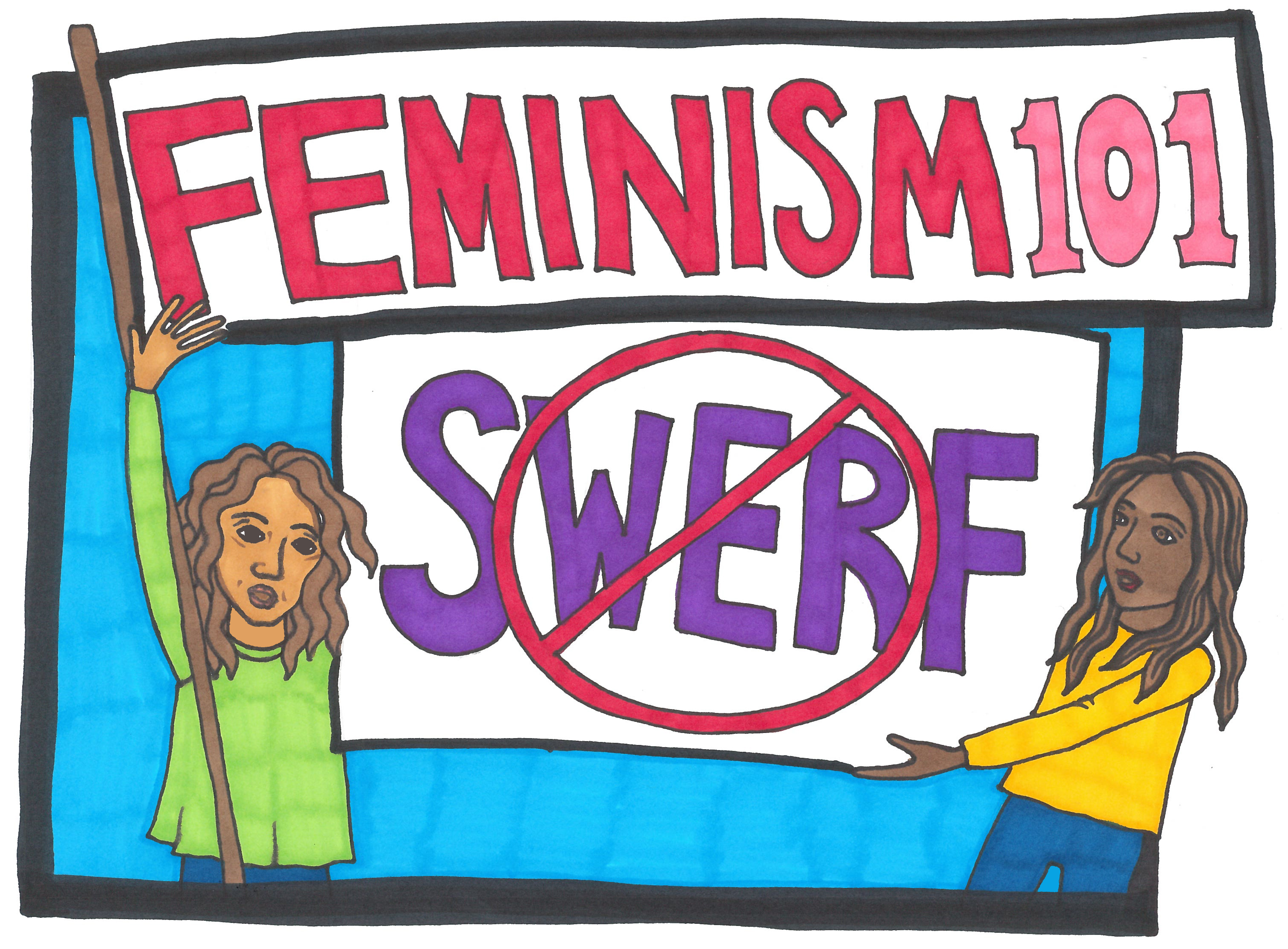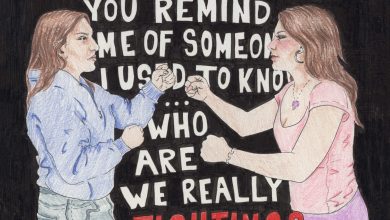Feminism 101: What Is A SWERF?

Design by Simone Montgomery.
Third-wave feminism in the U.S. gave rise to a movement and ideology increasingly centered on intersectionality, or the acceptance and incorporation of individuals of different races, gender identities, sexual orientations, economic backgrounds, and so on. In response to third-wave feminism materialized a variety of different schools of feminism, some of which merely have different focuses while others openly contradict each other.
Sex worker exclusionary radical feminism (SWERF) emerged as a response to the Third-wave’s more inclusive, intersectional approach to gender inequality, and is characterized primarily by discrimination against individuals engaged in sex work. These individuals include but are not limited to prostitutes, pornography models and actors, phone sex operators, erotic dancers, and web cam performers.
The argument behind SWERF ideology tends to be that sex workers, particularly those in the prostitution and pornography industries, become the victims of regular sexual objectification, exploitation, and violence; and that, by participating in this kind of industry, sex workers become co-perpetrators of these crimes. While most feminist schools support an individual’s right to choose what sexual activities they do or do not engage in, SWERFs take it upon themselves to tell other people what to do and what not to do with their bodies.
SWERFs also make sex workers the target of bullying and abuse through doxxing — the public release of someone’s private contact information and/or personal address — protesting and picketing against safe and legal sex work, and pushing for legislation that endangers the rights and safety of sex workers. SWERF is closely tied to TERF, or trans-exclusionary radical feminism, which promotes mistreatment and oppression of trans women and transgender people through similar means. Both SWERF and TERF constitute anti-feminist hate groups which in no way represent feminism as a whole. Their similarity lies mainly in the overlap of their support bases and the rhetoric they use to espouse their transphobic and whorephobic ideologies, whether through legislation or other channels. The fact that a disproportionate amount of sex workers also identify as transgender places these individuals at an increased risk of mistreatment. Whether a transgender individual chooses to engage in sex work or is forced to because of poverty, unemployment, or other discrimination-based factors, they are at risk of becoming victims of both transphobic and whorephobic hate crime. Trans individuals who are perceived as trans (as opposed to “passing” in their chosen gender) are especially vulnerable.
An important problem with SWERF ideology is its failure to distinguish between individuals who choose of their own volition to enter the sex work industry, and those who are victims of human trafficking. This results in the conflation of sex work with slavery, which is harmful both to sex workers and victims of slavery. This ideology also fails to recognize an individual’s right and capacity to choose their own profession and avenues of pleasure. For these reasons, most every group whose interests SWERFs claim to represent (including women of color, sex workers, allies, and so on) denounce the feminist subset as strictly anti-feminist.
Other criticism aimed at SWERFs point out that, despite their claim to combat the objectification, exploitation, and violence faced by members of the sex work industry, the group has not targeted workers in industries for which these are also prevalent problems, such as the modeling, garment, domestic labor, or food production industries. SWERFs also direct whorephobic comments and antagonism disproportionately toward female sex workers, and disregard the role that male sex workers play in the industry. This reveals that SWERF ideology is not, in fact, focused on ending violence against sex workers, but rather on policing women’s bodies and sexuality.
SWERFs engender hatred, fear, and oppression of individuals in the sex work industry. The empowerment and protection of sex workers cannot be achieved through SWERF ideology, which ultimately robs women of their sexual agency without any real regard for their personal health, safety, or rights as humans and workers. Safe, ethical regulation and destigmatization of sex work will require ongoing, sex-positive discourse from feminist circles and, most importantly, careful consideration of the needs and voices of the sex work community itself.




